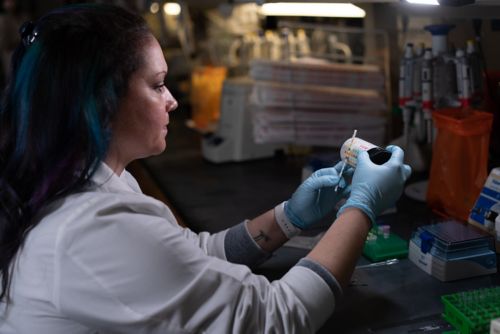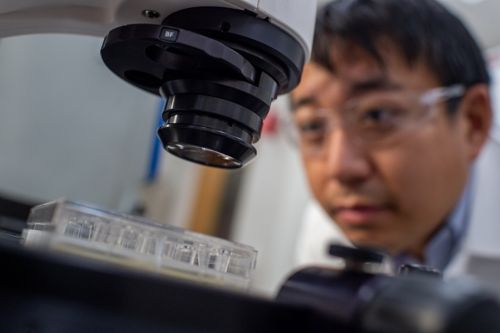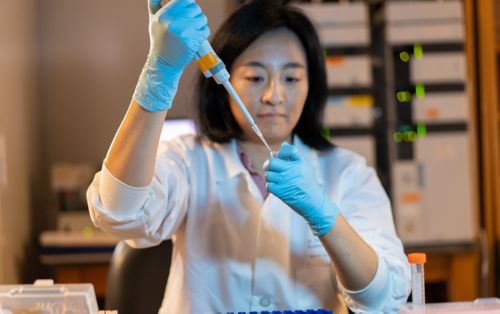St. Jude Family of Websites
Explore our cutting edge research, world-class patient care, career opportunities and more.
St. Jude Children's Research Hospital Home

- Fundraising
St. Jude Family of Websites
Explore our cutting edge research, world-class patient care, career opportunities and more.
St. Jude Children's Research Hospital Home

- Fundraising
About the Weiss Lab
Hematopoiesis is the process by which stem cells in the bone marrow divide and differentiate to become unique types of blood cells. Hematopoiesis is regulated by transcription factors, epigenetic modifiers, and non-coding RNAs. These regulators coordinate cell type-specific patterns of gene expression. Our laboratory studies the process of hematopoiesis and how the process is disrupted in non-malignant blood disorders. We have a specific interest in red blood cells and the underlying genetic mechanisms that drive disease.

In the news
-
Mitchell Weiss elected to the National Academy of Medicine
A leader in catastrophic blood disorders, Weiss is the eighth St. Jude faculty member to earn the honor
Our research summary
Our laboratory is particularly interested in non-malignant disorders of the hematopoietic system including sickle cell disease and thalassemia. Our research involves defining the mechanisms of gene regulation during hematopoiesis, the functions of non-coding RNAs, and the mechanisms of protein quality control such as autophagy and ubiquitin-mediated proteolysis in red blood cell formation and associated diseases.
A major project in our lab involves using CRISPR-Cas9 to explore new therapies for sickle cell disease and beta thalassemia using genome editing, base editing and other technologies. In addition, we are investigating a critical aspect of genome editing – safety – and exploring the potential for unintended, deleterious consequences.

Our interest in the regulation of gene expression during blood cell formation focuses on the transcription factors, DNA regulatory elements, non-coding RNAs and mechanisms of protein degradation. All of these processes act together to coordinate gene and protein expression, like a biological orchestra. More in-depth insights into these mechanisms and how they cross-communicate is critical to understanding how gene expression is regulated during the transition from a stem cell to a mature blood cell normally and in response to disease-related stresses.
Another major research project in our laboratory focuses on novel pharmacological therapies for thalassemia, a disorder in which unbalanced hemoglobin synthesis results in cytotoxic a-globin precipitates that destroy mature red blood cells and their precursors. Christophe Lechauve, PhD, was instrumental in leading a recent study for our laboratory in which we determined that free α-globin is degraded by autophagy – specifically mediated by the ULK1 protein – and that this process can be stimulated by mTORC1 inhibition to improve the pathology of beta thalassemia. We are continuing to study this problem with Dr. Lechauve through further analysis of mouse models and a planned clinical trial.

Selected Publications
Contact us
Mitchell J. Weiss, MD, PhD
Member, St. Jude Faculty
Chair, Department of Hematology
MS800
St. Jude Children's Research Hospital

Memphis, TN, 38105-3678 USA GET DIRECTIONS
